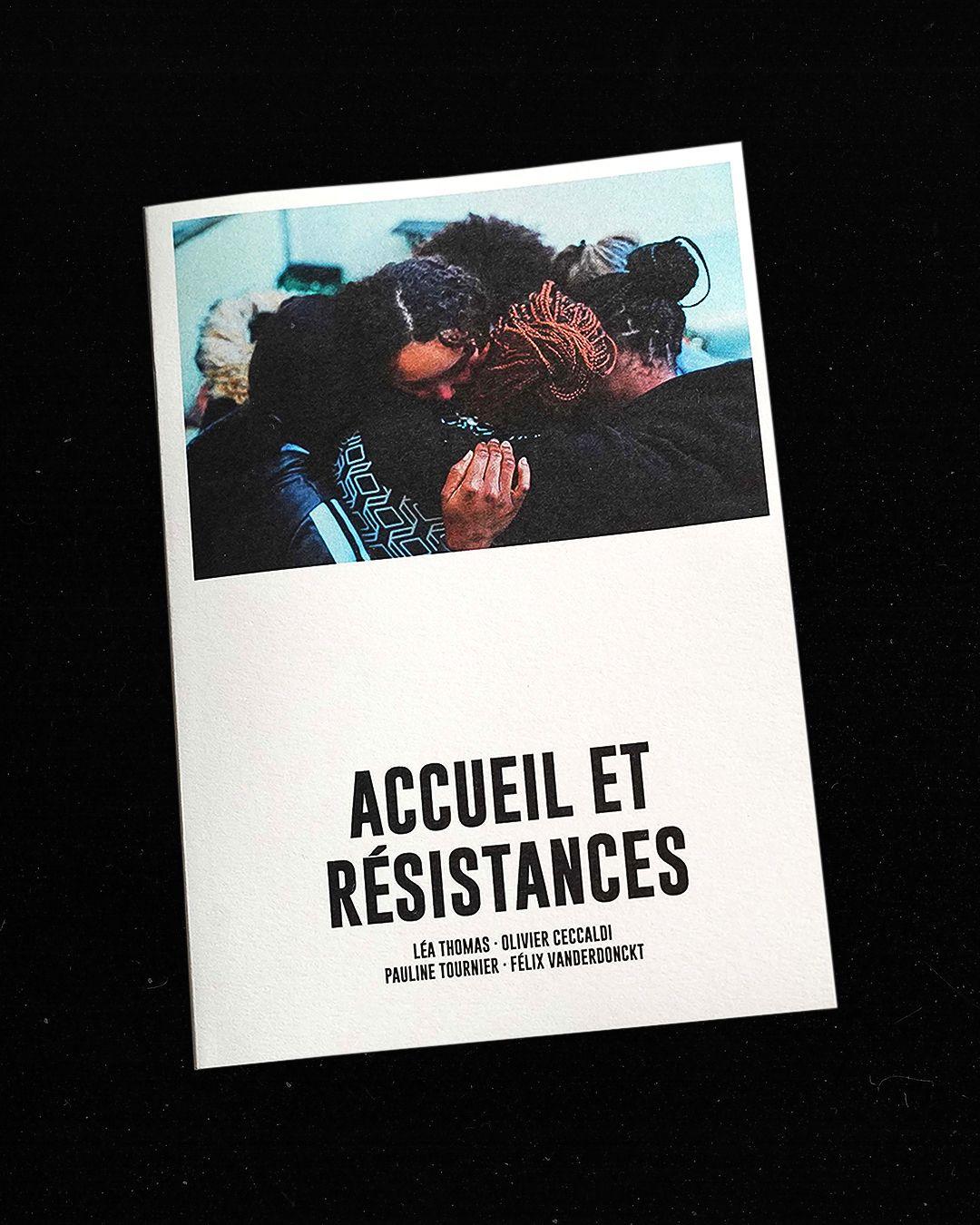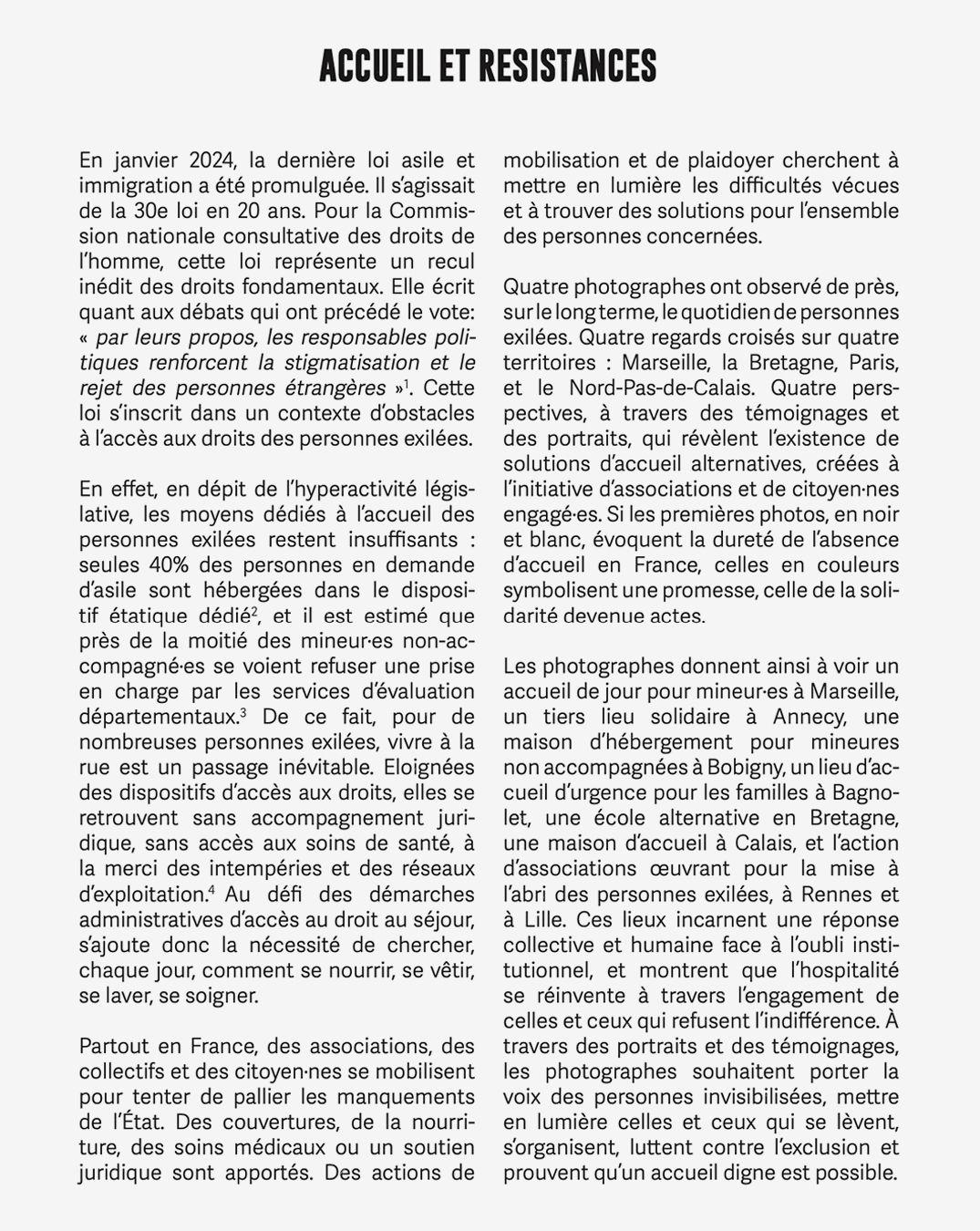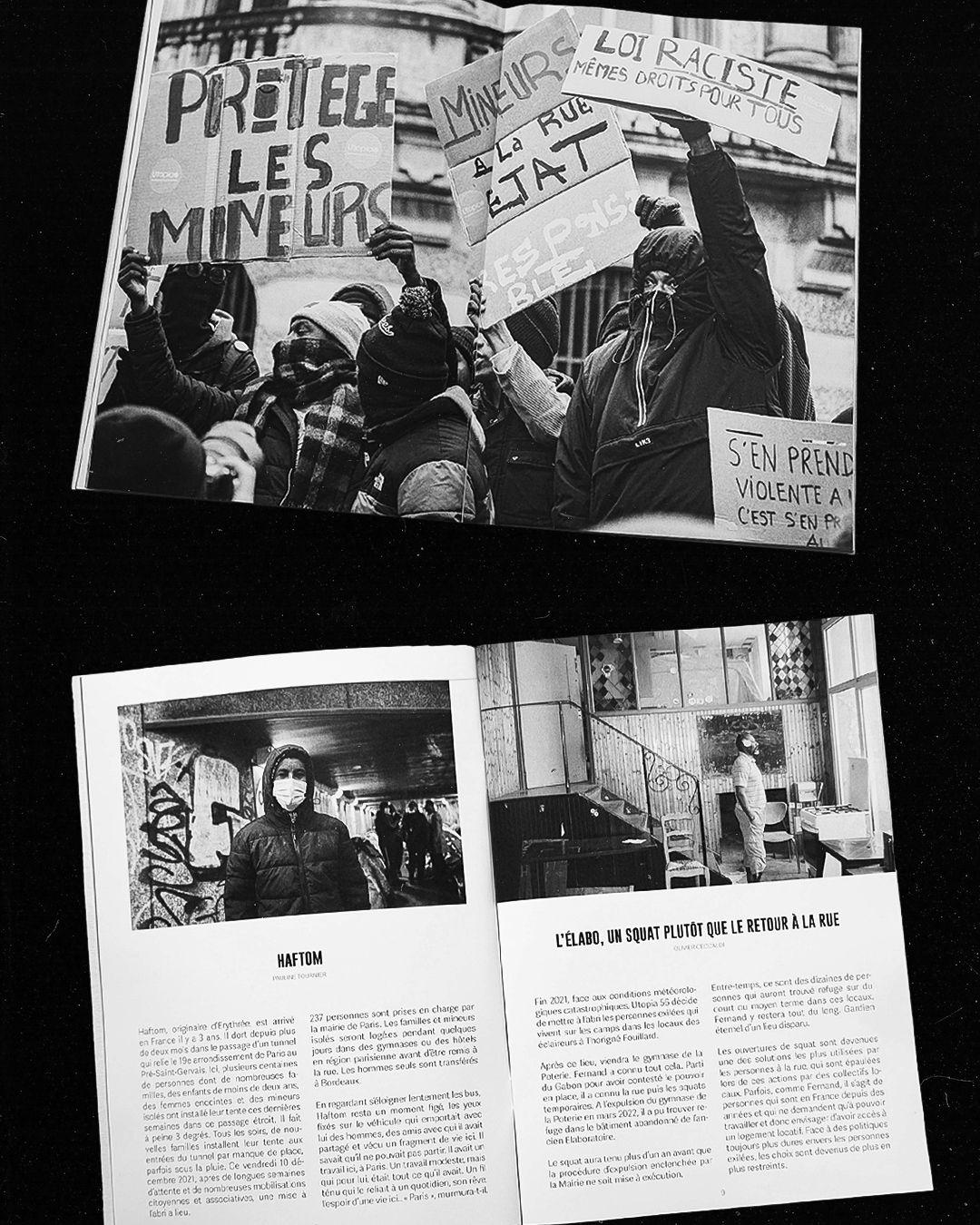Books
Events
News
Sortie du livre "Accueil et Résistances"- Janvier 2025
olivier ceccaldi
Jan 18, 2025
Accueil et Résistances
Projet en collaboration avec Léa Thomas, Pauline Tournier et Félix VanderdoncktEn janvier 2024, la dernière loi asile et immigration a été promulguée. Il s’agissait de la 30e loi en 20 ans. En dépit de l’hyperactivité législative, les moyens dédiés à l’accueil des personnes exilées restent insuffisants : seules 40% des personnes en demande d’asile sont hébergées dans le dispositif étatique dédié, et il est estimé que près de la moitié des mineur·es non-accompagné·es se voient refuser une prise en charge par les services d’évaluation départementaux. De ce fait, pour de nombreuses personnes exilées, vivre à la rue est un passage inévitable. Eloignées des dispositifs d’accès aux droits, elles se retrouvent sans accompagnement juridique, sans accès aux soins de santé, à la merci des intempéries et des réseaux d’exploitation. Au défi des démarches administratives d’accès au droit au séjour, s’ajoute donc la nécessité de chercher, chaque jour, comment se nourrir, se vêtir, se laver, se soigner. Partout en France, des associations, des collectifs et des citoyen·nes se mobilisent pour tenter de pallier les manquements de l’Etat. Des couvertures, de la nourriture, des soins médicaux ou un soutien juridique sont apportés. Des actions de mobilisation et de plaidoyer cherchent à mettre en lumière les difficultés vécues et à trouver des solutions pour l’ensemble des personnes concernées.Léa Thomas, Pauline Tournier, Félix Vanderdonckt et Olivier Ceccaldi ont observé de près, sur le long terme, le quotidien de personnes exilées. Quatre regards croisés sur quatre territoires : Marseille, la Bretagne, Paris, et le Nord-Pas-de-Calais. Quatre perspectives, à travers des témoignages et des portraits, qui révèlent l’existence de solutions d’accueil alternatives, créées à l’initiative d’associations et de citoyen·nes engagé·es. Si les premières photos, en noir et blanc, évoquent la dureté de l’absence d’accueil en France, celles en couleurs symbolisent une promesse, celle de la solidarité devenue actes. Les photographes donnent ainsi à voir un accueil de jour pour mineur·es à Marseille, un tiers lieu solidaire à Annecy, une maison d’hébergement pour mineures non accompagnées à Bobigny, un lieu d’accueil d’urgence pour les familles à Bagnolet, une école alternative en Bretagne, une maison d’accueil à Calais, et l’action d’associations œuvrant pour la mise à l’abri des personnes exilées, à Rennes et à Lille. Ces lieux incarnent une réponse collective et humaine face à l’oubli institutionnel, et montrent que l’hospitalité se réinvente à travers l’engagement de celles et ceux qui refusent l’indifférence. À travers des portraits et des témoignages, les photographes souhaitent porter la voix des personnes invisibilisées, mettre en lumière celles et ceux qui se lèvent, s’organisent, luttent contre l’exclusion et prouvent qu’un accueil digne est possible.
“Nous avons perdu notre foyer, c’est-à-dire la familiarité de notre vie quotidienne. Nous avons perdu notre travail, c’est-à-dire l’assurance d’être de quelque utilité en ce monde. Nous avons perdu notre langue, c’est-à-dire le naturel de nos réactions, la simplicité de nos gestes, l’expression spontanée de nos sentiments.”
Hannah Arendt
Accueil et Résistances
In collaboration with Léa Thomas, Pauline Tournier et Félix Vanderdonckt
In January 2024, the latest asylum and immigration law was enacted, marking the 30th law in 20 years. Despite this legislative activity, the resources allocated to welcoming exiled individuals remain insufficient: only 40% of asylum seekers are accommodated within the state system, and nearly half of unaccompanied minors are denied support by departmental evaluation services. As a result, for many exiled individuals, living on the streets becomes an inevitable passage. Far from systems for accessing their rights, they are left without legal assistance, without access to healthcare, at the mercy of the elements and exploitative networks. Alongside the challenge of navigating the legal procedures for residence rights, there is the daily struggle to find food, clothing, hygiene, and medical care. Across France, associations, collectives, and citizens are mobilizing to address the state's shortcomings. They provide blankets, food, medical care, and legal support. Mobilization and advocacy actions aim to highlight the difficulties faced and seek solutions for all those affected. Léa Thomas, Pauline Tournier, Félix Vanderdonckt, and Olivier Ceccaldi have closely followed the daily lives of exiled people over the long term. Four perspectives across four territories: Marseille, Brittany, Paris, and the Nord-Pas-de-Calais. Through testimonies and portraits, they reveal alternative reception solutions created by associations and engaged citizens. While the initial black-and-white photos reflect the harshness of the lack of reception in France, the color images symbolize a promise—solidarity turned into action. The photographers showcase a day center for minors in Marseille, a solidarity third place in Annecy, a shelter for unaccompanied minors in Bobigny, an emergency family reception center in Bagnolet, an alternative school in Brittany, a shelter in Calais, and the efforts of associations working to protect exiled individuals in Rennes and Lille. These places represent a collective and human response to institutional neglect and demonstrate that hospitality is being reinvented through the commitment of those who refuse indifference. Through portraits and testimonies, the photographers aim to give a voice to the invisibilized, shedding light on those who rise, organize, and fight against exclusion, proving that dignified reception is possible.
"We have lost our home, meaning the familiarity of our daily life. We have lost our work, meaning the assurance of being of some use in this world. We have lost our language, meaning the naturalness of our reactions, the simplicity of our gestures, the spontaneous expression of our feelings."
— Hannah Arendt
In collaboration with Léa Thomas, Pauline Tournier et Félix Vanderdonckt
In January 2024, the latest asylum and immigration law was enacted, marking the 30th law in 20 years. Despite this legislative activity, the resources allocated to welcoming exiled individuals remain insufficient: only 40% of asylum seekers are accommodated within the state system, and nearly half of unaccompanied minors are denied support by departmental evaluation services. As a result, for many exiled individuals, living on the streets becomes an inevitable passage. Far from systems for accessing their rights, they are left without legal assistance, without access to healthcare, at the mercy of the elements and exploitative networks. Alongside the challenge of navigating the legal procedures for residence rights, there is the daily struggle to find food, clothing, hygiene, and medical care. Across France, associations, collectives, and citizens are mobilizing to address the state's shortcomings. They provide blankets, food, medical care, and legal support. Mobilization and advocacy actions aim to highlight the difficulties faced and seek solutions for all those affected. Léa Thomas, Pauline Tournier, Félix Vanderdonckt, and Olivier Ceccaldi have closely followed the daily lives of exiled people over the long term. Four perspectives across four territories: Marseille, Brittany, Paris, and the Nord-Pas-de-Calais. Through testimonies and portraits, they reveal alternative reception solutions created by associations and engaged citizens. While the initial black-and-white photos reflect the harshness of the lack of reception in France, the color images symbolize a promise—solidarity turned into action. The photographers showcase a day center for minors in Marseille, a solidarity third place in Annecy, a shelter for unaccompanied minors in Bobigny, an emergency family reception center in Bagnolet, an alternative school in Brittany, a shelter in Calais, and the efforts of associations working to protect exiled individuals in Rennes and Lille. These places represent a collective and human response to institutional neglect and demonstrate that hospitality is being reinvented through the commitment of those who refuse indifference. Through portraits and testimonies, the photographers aim to give a voice to the invisibilized, shedding light on those who rise, organize, and fight against exclusion, proving that dignified reception is possible.
"We have lost our home, meaning the familiarity of our daily life. We have lost our work, meaning the assurance of being of some use in this world. We have lost our language, meaning the naturalness of our reactions, the simplicity of our gestures, the spontaneous expression of our feelings."
— Hannah Arendt
572








